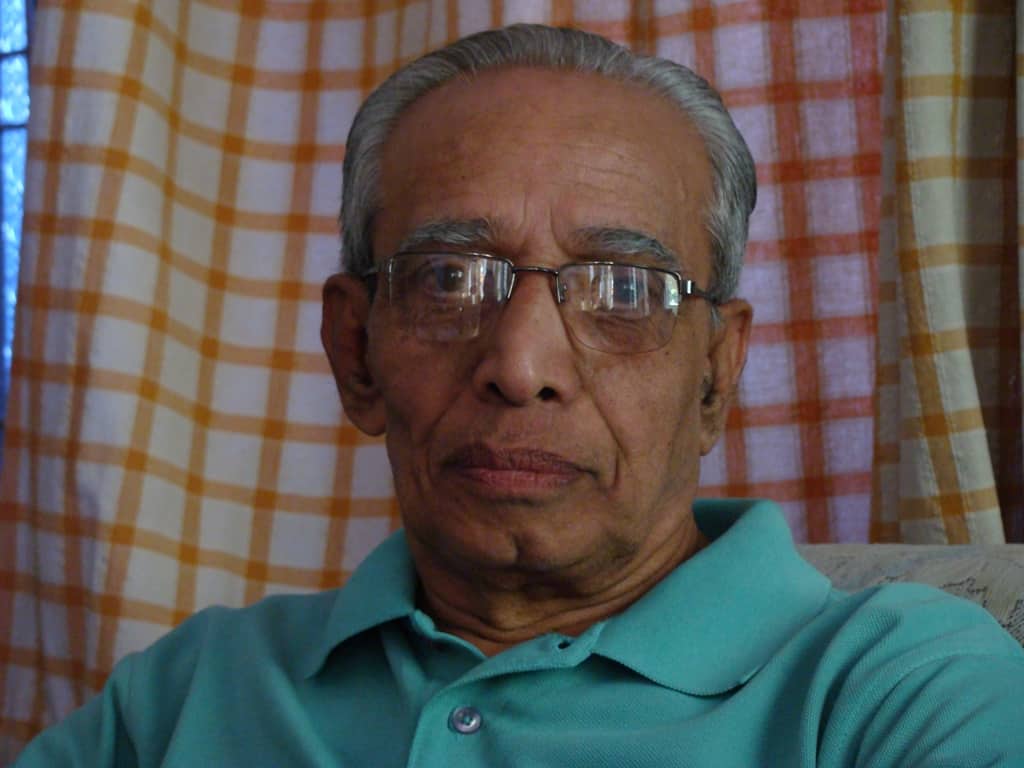Music lovers in BTM Layout and surrounding localities were treated to a grand flute concert on Sunday 24th April organised by the BTM Cultural Association at the Ramana Maharshi School for the Blind in 3rd Phase J P Nagar. The looming clouds had kept many from attendance but close to a hundred people turned up to listen to flautist Mysore A Chandan Kumar. Mysore Nagaraj accompanied him on violin, B C Manjunath on mridangam and Giridhar Udupa on ghatam. The oohs and the ahs from the audience, appreciating the flautist’s intricate rendering of musical compositions indicated a gathering a connoisseurs.

A flute concert in progress as part of the BTM Cultural Academy’s anniversary celebrations. Pic: Yograj S Mudalgi
The concert was organised as part of the 19th Anniversary celebrations of BTM Cultural Academy. It was in sometime in February 1992 that the seeds for the academy were sown. The current president of the academy, K N Anantharamaiah, 79, a retired MICO employee recounts how it all came in to place. "There was a severe dearth of places where a music lover could attend such concerts in Bangalore then, especially in these parts. Some eight people from MICO layout decided to do something about it. They decided to meet on a Sunday to discuss what could be done and invited everyone in the neighbourhood through small pamphlets." Anantharamaiah, a music lover himself, heard about the meeting and decided to attend it.
A decision was taken that they would pool in money and also go door-to-door telling people about their endeavour and requesting for contributions through memberships. "It was a gradual start; nonetheless we were ready to host our first concert on April 14th 1992 at a temple in 9th Block Jayanagar." The academy has come a long way since. It now organises close to 25 cultural programmes a year. The venue was later shifted Ramana Maharshi School for the Blind in J P Nagar from 1994 and it has since been home to the academy’s programmes.
A large number of the cultural programmes are Carnatic based but Anantharamaiah says, to add a little variety, they have two classical dance and Hindustani concerts in a year. "What set us apart from other sabhas are our thematic concerts. Once a year in January, we have a weeklong aradhana where Thyagaraja Krithis and Purandaradasa Kritis are sung by artistes." Among other themes are jugalbandhis of Carnatic and Hindustani, a two-and-a-half hour concert where only pieces from one composer are sung.

A section of the audience at the concert. Pic: Yograj S Mudalgi
A concert by acclaimed flautist Praveen Godkindi and Jayanthi Kumaresh on the Veena, in March was one of the most well received events in recent times, says Anantharamaiah. "Many musicians of repute have performed on the stage here," he says with pride.
None of the founding members except Anantharamaiah are a part of the committee anymore. He has been elected the president of the academy since 1999. "Everyone eventually got busy and excused themselves from the activities. I am the lone founding member in the academy right now," he says. In 1998 academy was registered as a trust as it started growing. The Committee has ten members including Anantharamaiah.
The academy has 350 annual members and close to 150 life members. The fee for membership is set at a nominal rate of Rs 500 a year. If two in a family wish to enroll then it is discounted to Rs 400 per member. Life membership costs Rs 2,500 and it is discounted to Rs 2000 per member if two in a family wish to join. "The annual membership is less than what one would spend in an evening at the movies. Tickets are also sold at the concert are priced at a modest Rs 25 for non-members."
The membership has a mix of both young and the old. Kruthika Sreenivasan, 23, a software engineer at Infosys and a resident of J P Nagar is a regular attendee. "I have been attending the programmes since my childhood and became a member recently. Being, a carnatic singer myself, I appreciate the quality of the artistes that perform here," she says. N G Bhaskara, 62, discovered the academy in 2002 on his visit to his relatives in JP Nagar. Travelling all the way from Banaswadi, he would ensure he attended the concerts and then go home. A former business head, he shifted to JP Nagar in 2004 and has been involved in the academy’s programmes. "I have had a penchant for music from a long time and this is the perfect place to listen to some really good classical music," he says.

K N Anantharamiah, one of the founding members of the BTM Cultural Academy. Pic: Yograj S Mudalgi
Although the academy was formed by residents of BTM layout and carries the name, the concerts are held in JP Nagar. "We hold our concerts there because there is no auditorium space available for conducting such programmes here," says Anantharamaiah. He adds that they have written to BDA for providing premises but is not too hopeful about getting any. He looks at the bright side and says, "The current location is convenient for people coming from Jayanagar, JP Nagar and BTM layout so it’s not entirely a bad thing."
Ananthramaiah says he recognises the need for younger blood to slowly take over the mantle of looking after the academy. "Most of us in the committee are getting old. We will not be around for much longer. We are confident that the younger members of the academy will become more active and keep the flames burning," says Anantharamaiah as he signs off.
Those interested in becoming a member can contact K N Anantharamaiah on 080 65616693 or 9242461492. ⊕